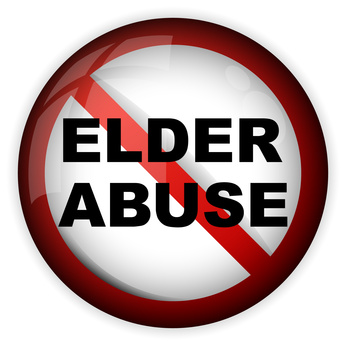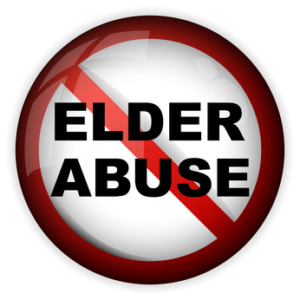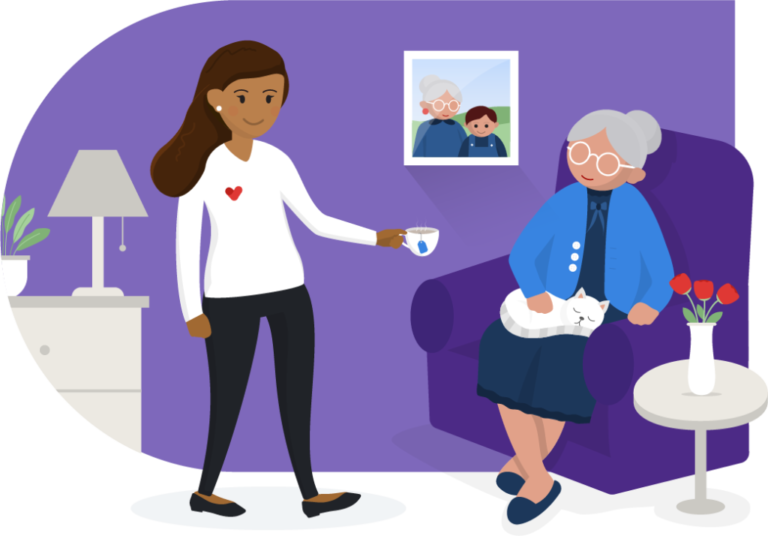
Choosing the right type of senior care for a loved one is one of the most important—and often overwhelming—decisions...

Elderly abuse is defined as abuse or neglect of elderly persons by a caregiver or another person in a relationship where trust is to be expected. It takes place everywhere, including here in San Diego County.
Here’s what all families need to know to prevent elderly abuse.
According to the Centers for Disease Control, “Elder abuse is the infliction of physical, emotional/psychological, sexual or financial harm on an older adult. Elder abuse can also take the form of intentional or unintentional neglect of an older adult by the caregiver.”
Physical Abuse or Neglect – Purposefully inflicting harm to the body including assault, improper restraining, over or under medicating, ignoring personal hygiene, failing to provide proper nutrition or hydration, or exposing to dangerous environments. Neglect can also be self-inflicted.
Emotional or Psychological Abuse – Purposefully inflicting harm including withholding care or medications, abandonment, verbally causing humiliation or shame, or ignoring pain or other debilitating disease symptoms.
Sexual Abuse – Inappropriate physical contact of any kind of an elderly person’s body that they are unable to consent to and/or do not understand. Sexual abuse can also include forcing an elderly person to do or look at things of a sexual nature without their consent.
Financial Abuse – Misuse of an elderly person’s money or belongings for personal gain, including improper use of legal documents by relatives and telephone or mail scams by strangers.
 Unexplained injuries, bruises, or bedsores
Unexplained injuries, bruises, or bedsoresMost cases of abuse take place in the home.
Women are more likely than men to suffer elderly abuse.
Most cases of elder abuse go unreported. For every case reported, there may be as many as 23 cases that are not reported.
The elderly person themselves may be reluctant to report abuse due to fear or retaliation or because they lack the cognitive skills to do so.
90% of elderly abusers are family members, most often adult children, spouses or partners.
Family members who abuse drugs or alcohol are more likely to abuse than those who do not.
Family members who feel the burden of care giving are more likely to abuse than those who do not.
Social isolation and cognitive impairment are two contributing factors to abuse.
Elderly abuse can be self-inflicted.
If you are in San Diego County and you suspect elder abuse, please take action and contact:
The San Diego County District Attorney’s Office
The San Diego County Sheriff’s Department
If you are unsure of whether or not to report suspected abuse, check to see if you are a Mandated Reporter, therefore required by law to report suspected abuse.
According to the Welfare and Institutions Code 15630, a Mandated Reporter is:
“Any person who has assumed full or intermittent responsibility for care or custody of an elder or dependent adult, whether or not that person receives compensation, including administrators, supervisors, and any licensed staff of a public or private facility that provides care or services for elder or dependent adults, or any elder or dependent adult care custodian, health practitioner, clergy member, or employee of a county adult protective services agency or a local law enforcement agency, is a mandated reporter.

Choosing the right type of senior care for a loved one is one of the most important—and often overwhelming—decisions...

Caring for an aging loved one is a journey filled with love, patience, and dedication. However, when memory-related issues...

In 2025, the cost of in-home care continues to be a critical factor for families seeking senior caregiving services....

As our loved ones age, their care needs often change, and navigating the world of senior care facilities can...